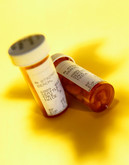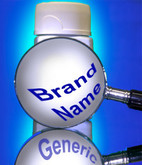Biosimilars
Merck outlines biosimilars programme
During the 35th Annual Health Care Conference held on 2−4 March 2015 in Boston, USA, US pharma giant Merck outlined its biosimilars programme.
Dutch medicines agency says biosimilars ‘have no relevant differences’ to originators
The Dutch Medicines Evaluation Board (MEB) has updated its position on biosimilars, stating that ‘biosimilars have been proven to have no relevant differences compared to an innovator biological medicinal product as far as quality, safety and efficacy are concerned’.
Substitution of generics in the US
In order to evaluate how strategies to promote the prescribing of generics by physicians in the US might apply to biosimilars, Sarpatwari and co-authors discuss the types of substitution possible with generics [1].
Infliximab SEB launched in Canada
US-based generics major Hospira announced on 30 March 2015 the availability of its infliximab subsequent entry biologic (SEB) Inflectra in Canada, the country’s first SEB monoclonal antibody therapy.
Comparison of the markets for biosimilars and generics
Health is a typical field where the economic theory of market competition does not enjoy the basic conditions to work and the pharmaceutical market is no exception. However, as soon as a patent expires, price competition is opened up.
Patient registry data supports efficacy and safety of Inflectra
US-based injectables specialist Hospira presented data on 19 February 2015 on the use of its biosimilar version of infliximab, Inflectra, at the 10th Congress of the European Crohn’s and Colitis Organisation (ECCO).
Samsung Bioepis submits second biosimilar to EMA
South Korean electronics giant Samsung and biotechnology company Biogen Idec’s joint venture Samsung Bioepis announced on 13 March 2015 that its infliximab biosimilar candidate, SB2, had been accepted for review by the European Medicines Agency (EMA).
Paying physicians to prescribe generics and biosimilars in the US
Healthcare spending on prescription medications comprises 1.6% of gross domestic product (GDP) in the US and continues to rise. Brand-name prescription medications – both small-molecule and biological drugs – are the primary driver of this growth, increasing 15% in price in 2014 alone [1].
US court rejects Amgen’s bid to block filgrastim biosimilar
On 19 March 2015, the US District Court for North California rejected US biotechnology giant Amgen’s request for a preliminary injunction blocking Sandoz, the generics division of Novartis, from launching its filgrastim biosimilar Zarxio (filgrastim-sndz).
Rheumatologists want to evaluate long-term safety of biosimilars
One of the biggest challenges for biosimilar companies is to convince physicians to use biosimilars instead of their well-known biological counterparts. One of the issues that physicians see as a concern is the long-term safety of biosimilars, a concern that is thought could slow down the adoption of biosimilars. This issue has even prompted certain organizations to embark on programmes that seek to provide definitive evidence on the issue.












